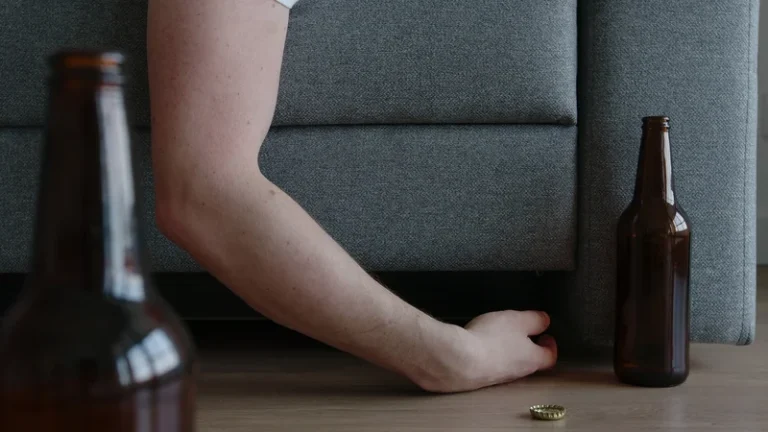
Genetic, psychological, social and environmental factors can impact how drinking alcohol affects your body and behavior. Theories suggest that for certain people drinking has a different and stronger impact that can lead to alcohol use disorder. Furthermore, the cost of addressing the consequences of violent behavior, such as medical treatments for victims and providing support services, can be a significant burden on public resources. Our residents have found relief by addressing the root causes of alcoholic rage syndrome and seeking appropriate treatment.

What Are Alcoholic Face Symptoms and How to Spot Them
Their current job is overwhelming for them; maybe they grew up rough and are suffering from the wounds of childhood. Maybe something traumatic has happened in the recent past, or they are lonely. The easier route is to make other people responsible for their moods and overall emotional well-being. When someone is addicted to alcohol, it alters their behavior in predictable patterns.
Lifestyle Modifications

As a positive, unalarming emotion and one that others are used to seeing, however, happiness isn’t on the radar as much as anger. Now that you’re no longer drinking, you have a chance to embrace your sober life and redefine your passions. There are also a few steps you can take on your own to start enjoying your new sober life as you work toward lasting recovery. They may seem simple and unsurprising, but they do work for many people.
Crisis Management
While the phrase “dry drunk” is controversial, the set of symptoms it refers to are a normal part of recovery for plenty of people and nothing to be ashamed about. Techniques that help to regulate stress and anxiety are essential coping tools that are useful in the rehab environment as well as life after rehab. These activities might include learning how to practice mindfulness meditation, yoga classes, therapeutic massage, acupuncture, deep breathing exercises, aromatherapy, and music and art therapy.

Why Are Alcoholics So Mean To The Ones They Love?
Disinhibition can make you unable to suppress or change an act of aggression that is not appropriate for the situation you’re in. Alcohol can provoke different emotional responses for different people. If you have a natural tendency to be angry, drinking alcohol may cause you to become aggressive. Online programs like Ria Health can give you or your loved one access to coaching support, anti-craving medication, and helpful digital tools. Whether you want to reduce drinking or quit altogether Ria will partner with you to design a program to meet your personal goals.
After all, it isn’t always practical to act on every impulse of retaliation. Disulfiram (Antabuse), acamprosate (Campral), and naltrexone are the most common medications used to treat AUD. Some services provide food and transportation, but services vary by program. It affects parts of your brain responsible for movement, memory, self-control, and basic functions like hunger and thirst. Some people truly experience sobriety as a kind alcoholic rage syndrome of death and have to accept the loss and learn and grow from the experience before they can move on. These outbursts are akin to a volcano blowing out sideways rather than straight-up, as the emotions will always find a way out.
Alcohol use disorder includes a level of drinking that’s sometimes called alcoholism. Alcohol affects brain chemistry by altering neurotransmitters, which manage our mood and impulses. It decreases inhibition and can https://ecosoberhouse.com/ increase stress hormones like cortisol, making some individuals more prone to anger and aggression when drinking. The most effective way to cope with alcohol-induced anger is to avoid consuming too much alcohol. There is also a theory that the disinhibition that alcohol creates raises the risk of violent behavior. Heavy drinkers are more likely to engage in risky behavior, which includes being violent and acting out hostile emotions, often against a loved one.
- You can help a person with rageaholic behaviors slow down their reactions by focusing on your own communication.
- If you recognize your own behavior in the description of intermittent explosive disorder, talk with your alcoholic rage syndrome doctor or other health care professional about treatment options.
- Likewise, hostility is an attitude of resentment and unfriendliness that doesn’t require feelings of anger.
- Though this may sound sophomoric, the alcoholic/addict needs to pursue another passion other than his drug of choice.
- These outbursts are akin to a volcano blowing out sideways rather than straight-up, as the emotions will always find a way out.
The Link Between Alcohol and Aggression
Trying to identify what’s underneath their anger can help you calmly express that you’re listening and you understand. The more calm and rational you can remain, the better the chances are that their anger will simmer down. You might feel as though you’re walking on eggshells, or that you can’t predict what response you’ll get, even when you do the “right” thing. Being around someone who is unpredictable with their anger and rage responses can be challenging and even scary. The most recent data on IED suggests only 0.8% of the global population lives with this condition.
Research, Trends, and Future Directions
If we hang out with people who throw digs at each other (or at us) or normalize alcohol-induced aggression, it’s more likely to make an appearance. Perhaps our friends play it off as funny, or maybe they downplay it due to their own insecurities — whatever the reason is, if our environment makes our “inner Timmy” feel welcome, he’s more likely to show up. Those who do seem prone to get angry under the influence might have some characteristic brain activity patterns going on. These neurochemical changes are correlated to some behavioral symptoms, such as disinhibition, and also relate to some psychological factors. If you follow true crime, you’ve heard about the notorious Murdaugh trials in South Carolina, with the latest being the trial of Alec Murdaugh convicted for killing his son and wife.
What are the symptoms?
Take our short alcohol quiz to learn where you fall on the drinking spectrum and if you might benefit from quitting or cutting back on alcohol. It is best to choose a time when your friend is thinking clearly and seems receptive. Let them know you are concerned about the pattern you have noticed and how they may benefit from a recovery program. They may not be aware of the newer and more convenient options that exist today. According to the National Council on Alcoholism and Drug Dependence (NCADD) alcohol more so than any other substance is a contributing factor in cases of rape, murder, spousal and child abuse, and assault.

